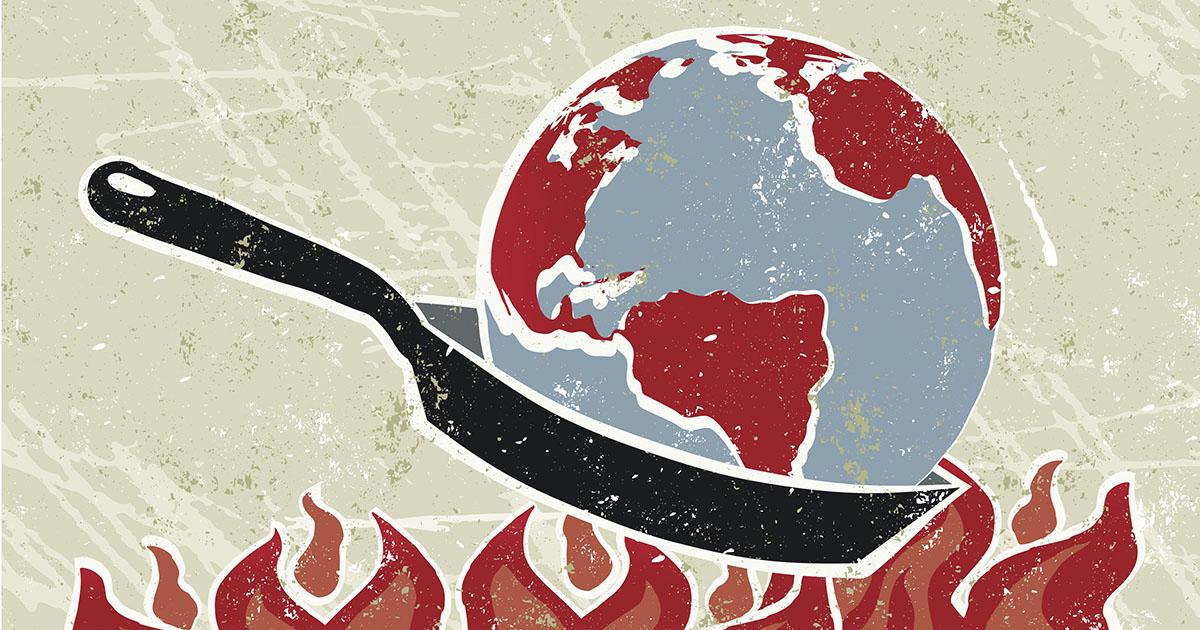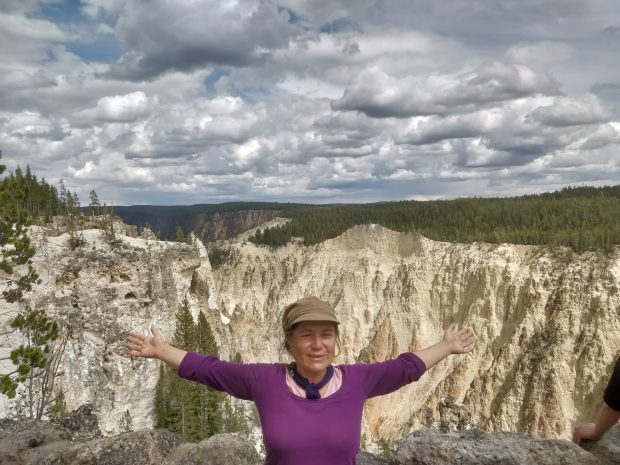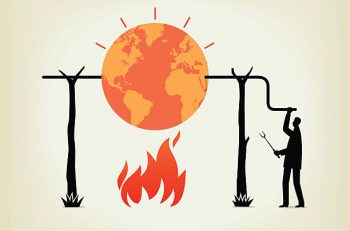‘We Want Fair Paris Agreement Practices’

The Paris Agreement, which Turkey had not signed before, now seemed essential to ratify for the three billion dollars it would take for adaptation measures, as well as in order not to fall outside the determined international trade criteria. Now, let's look at some questions about what needs to be done throughout Turkey in the restoration of the ecosystem and the biosphere.
As a result of the rapid warming of the world as a result of consumption-centered policies, it is predicted that in 2100 there will be a warming of 800ppm, which no living thing can survive. Fires in the south and east and floods in the north have started to show signs of the global climate change we have experienced in Turkey this summer. In October, Turkey ratified the Paris Agreement with a 6-year delay. Now, the questions come to the fore whether steps will be taken to cure the problem.
Especially in the last 20 years, Turkey was counted among the countries that increased carbon emissions the most in Europe. It was also noteworthy for being the only country among OECD countries that did not ratify the Paris Agreement. It seemed essential for Turkey to ratify this contract, which it had not signed before, to ensure that it would now receive three billion dollars for adaptation measures and not to fall outside the determined international trade criteria. Now, let’s look at some questions about what needs to be done throughout Turkey in the restoration of the ecosystem and the biosphere.
Energy Problem
In Europe, it is aimed to reduce greenhouse gases by 21% by 2030. Since every raw material is turned into a finished product with the consumption of water and energy, we see that more than half of the carbon emissions are used for energy. In this context, it seems scary to embrace nuclear energy as clean energy. Why try to extend the life of thermal power plants when the damage is so obvious? A capitalist country can never stop a pollutant without getting back its investment, even if it is an environmental policy. There was no shutdown of thermal power plants in Germany. But over time, it was promised that those that expired would not be renewed and that they would all be removed by 2050. Those who entreat for the Akbelen forests in Milas İkizköy, on the other hand, are looking for an extension for the next 25 years, despite the end of the plant’s investment life. How to approach this kind of irrationality? However, within the scope of energy democracy, can everyone locally be encouraged to manage their own energy by establishing energy cooperatives with environmentally friendly methods as much as possible? A smart government creates such an energy policy to both reduce centralization and increase energy efficiency.
Water, Agriculture and Livestock
The need for food in settled life concerns many areas. Since the contribution of agriculture and animal husbandry to climate change is 18%, what kind of improvement work will be brought to the grasslands that have been opened by cutting forests and destroying local vegetation, both because of the meat industry? While it is clear that pastures in Anatolia are carbon sinks, will the pastures that have been privatized and opened for construction be brought back?
How will these areas be rehabilitated when the underground water layer falls by tens of meters every year and a series of drying up lakes, rivers and streams are sacrificed to HEPP projects? How will irrigated agriculture be stopped on private farms by stealing public property water (which also destroys wildlife) on the shores of the Menderes River and tens of dry lakes? What kind of program will be followed for the transition to waterless agriculture?
As small farmers still feed 70% of the world, what kind of support program is envisaged for their continuity according to climate change? Will agroecology teaching, which is a nature-friendly and public-based ecological farming method that combines the traditional local and scientific methods of the region and internalizes the slogan ‘from farmer to farmer’, be offered free of charge to those who need it? Can agroecology institutes be expanded at the local level?
Fire Ecology
The latest IPCC report states that we are now entering the age of fire. What is your fire ecology policy in this context? We already see how important local knowledge and skills are due to our fragmented and fractured geographical structure that varies from region to region. Will these be recorded, and employment will be provided to the public? Will those who look at the burning forest areas as a source of income say ‘stop’ and be left to repair themselves?
It is a chance that we have not lost the roots of local practices in Anatolia, even if only a little. However, if these are not taken care of, future generations will have to start everything from scratch in terms of ecological restoration. For example, will the practices of nomadic animal husbandry and similar traditional methods that lead to carbon absorption by communities such as the Sarıkeçilis in the Taurus of the Mediterranean be supported? Likewise in Kars, in Dersim, in Taşlıtarla in the South, and in the East, there are a number of undisturbed local ecological examples, will they be expanded? These examples are a laboratory for Europe in restoring biodiversity and learning from local traditional methods.
It is said that our biodiversity is greater than in Europe. However, at this rate, we will fall far below Europe. By creating wildlife corridors and cleaning rivers and lakes, even in European cities, biodiversity has increased tons of times over the last five years. Years later, we can see this in a European country as both increased bird and insect diversity and harmony in plants and ecosystems.
Green Capitalism Doesn’t Solve the Problem, It Hides It
We talked about human needs above. This situation is also the result of capitalist consumption-oriented policies that have put people at the center for the last 200 years, especially with industrialization. How will climate justice be achieved in this context? The effects of accelerating destruction in the Anthropocene are clear. Therefore, will we pursue a climate justice that is not human-centered but in which the rights of all living things are respected equally, and ecocides are put to an end? The destruction that emerged as a result of the capitalist consumer society was embodied in the slogan ‘Change the System, Not the Climate’. However, the issue of how to change what is important in the system. As it is known, in the last 20 years (under the name of Sustainability, which was put forward at the Rio environmental summit), capitalism seeks to produce ‘green’ solutions in its own way. For example, instead of reducing consumption and waste, promoting recycling is one of them. Will policies be developed that it is no longer an era of economic growth but of restoration? It is impossible to believe in the solutions of capitalism, which still sees nature as a source of resources with its green package. I believe that only real solutions can be discussed at the summits where climate justice is the subject of the people, as in Cochabam.



Bizi Takip Edin